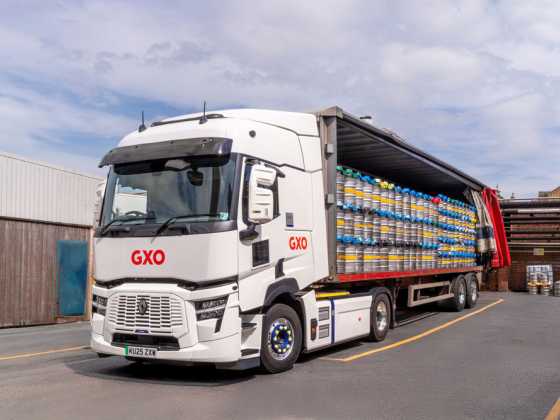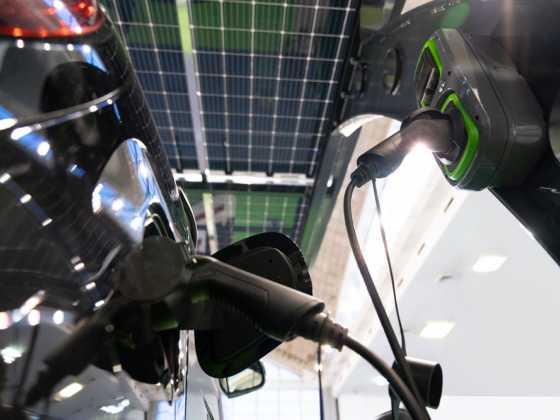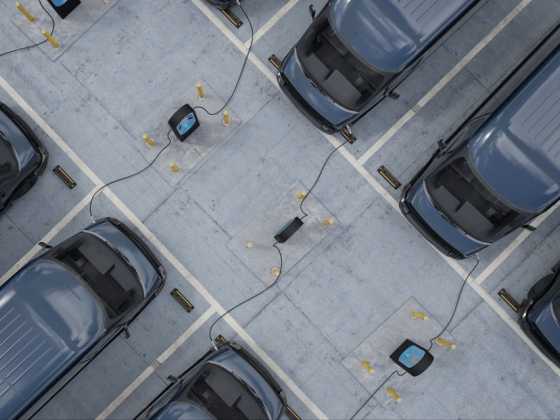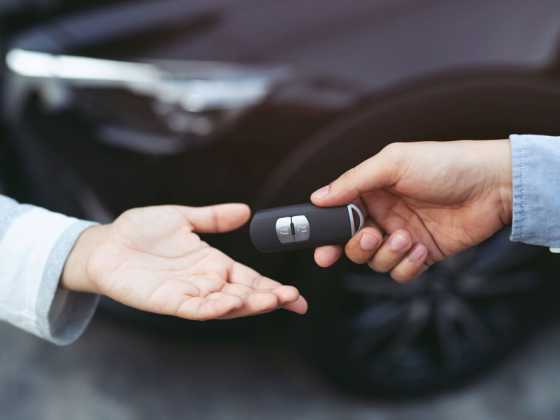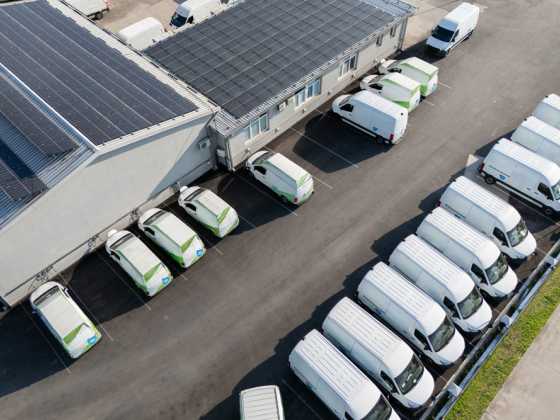Fuelling the last mile with pedal power
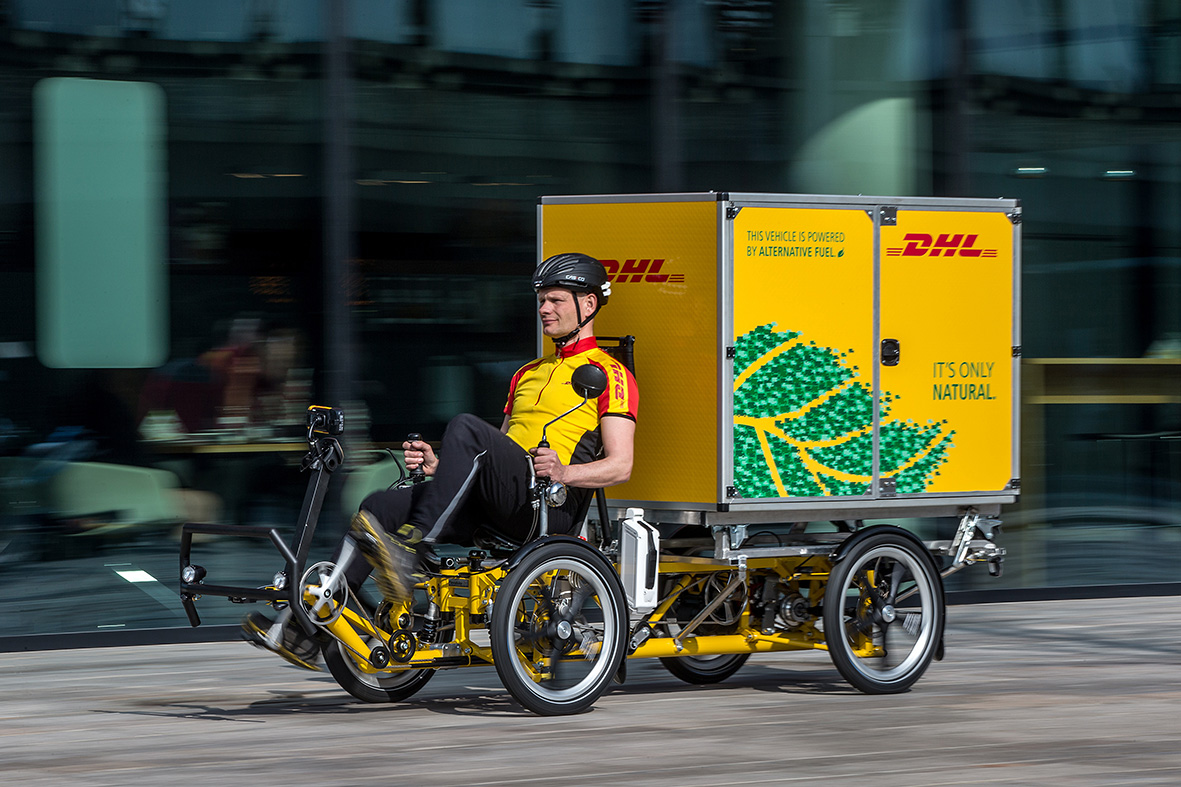
Zero emission deliveries in busy urban centres are here now. Richard Armitage, director of the European Cycle Logistics Federation, reports on how the humble bike is delivering common sense solutions in urban centres
In the UK a growing number of deliveries are being done by modern cargo bike. This fast-developing market for cycle logistics has three strands: courier, parcel and express deliveries; services provided by businesses, traders and councils; and domestic and leisure users.
The ‘last mile’ is the most costly part of any parcel’s journey towards its final destination. In practice, it should be called the last mile, first mile or only mile, as it covers deliveries to the end user, collections, and end-to-end trips within a city or a town when the parcel never goes into a national hub and spoke system. Independent cycle logistics companies can now be found all over the UK, some of whom are well-established businesses in their own right.
Outspoken Delivery, for instance, with branches in Norwich, Glasgow and London, has its HQ in Cambridge and was established over 10 years ago. It has a proper depot, delivers many of its Cambridge workload by cargo trike, and takes in work from several of the big couriers, like TNT Express.
The firm is currently rebranding as Zedify, focusing customers’ attention on their zero emission delivery capability, and to acknowledge that their fleet has expanded to included electric vans as well as bikes.
Electric assist
But the global and national couriers are also turning to bikes, incorporating cargo bikes, often with electric-assist, into their inner city and congested urban territories. DHL has turned to the innovative Swedish firm, Velove, for its ‘Armadillo’, with its rider on a recumbent bicycle at the front with a 1m3 box behind, all on four wheels and is operating these units in the Netherlands and elsewhere.
UPS is using electric-assist trikes successfully in inner Hamburg, Germany, whilst in Westminster the company is trialling a new trailer towed behind a bike. These operations are carrying B2B and B2C parcels, providing next day, same day and express services for all manner of goods, and many are involved in food transport.
Another strand of the market is the window-cleaner, plumber, decorator, landscape gardener, coffee cart and ice cream seller using a cargo bike, often with a trailer. Mail runs between Council buildings, attaching planning notices on lamp-posts and delivering biological samples for the NHS – all of these are being done by bike somewhere in the UK.
Hereford Pedicabs and Cargo provides a separated trade waste collection, shredding and recycling service for local businesses and organisations using cargo trikes fitted with cages behind the rider.
Managing director, Will Vaughan, has invested in shredding and compacting machinery located in his depot and his firm recycles paper, cardboard and plastic by the tonne.
In Manchester, Rob Andrews has just started his mobile pizza oven business – Manchester Pizza Revolution – using a bike trailer towed behind his electric-assist Bullitt cargo bike. The Carla Cargo trailer has been imported from Germany by Manchester Bike Hire, which has used to move dockless hire bikes around the city for the Chinese bikeshare operator, Mobike.
Domestic duties
The final strand is where families and households have a cargo bike to help with a range of domestic tasks – carrying small children, shopping, food and tools to and from the allotment – and a wide variety of other journeys, ranging from taking a picnic to the park through to moving house, sound systems at events, weddings, and even funerals.
CarryMe Bikes is a social enterprise based in East London which helps families, tradespeople, businesses, services and indeed anyone move their precious cargo by bicycle instead of by car or van.
Founder, Alix Stredwick, has been selling and hiring cargo bikes, or hiring units out for events, since 2011.
Trafford-based Bambino Biking’s manager is Chris Leakey, busy turning his hard-won knowledge of bringing up two young children using the bike on an everyday basis into a one-stop shop business. Bambino provides families with trail and advice sessions, to help parents and families to get cycling with their kids. Bambino can hire or sell cargo bikes for carrying children, kids bike seats, bike trailers and tag-a-longs and stocks a wide range of brands to suit all budgets and different individual needs.
The wider picture
Turning to the wider picture, there is a network of national cycle logistics associations – including in the UK, Germany and Spain – operating under the umbrella of the European Cycle Logistics Federation (ECLF). The fourth European Cycle Logistics Conference hosted by the City of Vienna in 2017 attracted 400 participants over three days, from 24 countries, and 41 exhibitors. The rapid growth of cycle logistics is leading to classic “growing pains”.
Technically, operators are demanding better and stronger cargo bikes and trikes. Digitally, integrated data sharing platforms are going to be vital to make cycle logistics efficient and cost effective. Economically, cycle logistics operators and cargo bike manufacturers need to become strong businesses to ensure growth can continue and staff can be rewarded properly. There is an important role for urban policy-makers in municipal government: they are being asked to make the cargo bike welcome, enabling family and domestic use through cargobike friendly infrastructure, parking, training and loan schemes.
Zero carbon, zero emission deliveries are available now. It is well established that liveable cities need to be rid of congestion, to provide their citizens with good air quality and less noise, and to retain efficient access to goods and services. Research published in the CycleLogistics Ahead Final Report (2017) showed that one in two motorised trips involving cargo could be put on bikes and that about 25 per cent of urban commercial delivery can be by bike.
Subsidies
Cargo bike purchase subsidy schemes are helping to kick-start the cargo bike market in some larger mainland European cities. In Vienna, elected Vice Mayor, Maria Vasilakou, announced €800,000 support to families
and businesses buying cargo bikes at the March 2017 ECLF Conference and it has been very successful.
In April 2018, the Berlin Senate’s Environment Minister, Regina Günther, launched her two-year 700,000 scheme at an ECLF Symposium during an evening reception hosted by the Dutch Embassy in Berlin.
Here in the UK, Transport Minister Jesse Norman is giving active consideration to extending the OLEV electric car and van subsidy scheme to electric-assist cargo bikes.
Cycle logistics and cargo bikes are not the solution to congestion, poor air quality, urban noise, and carbon-dependent transport, but they are most definitely part of the solution.

